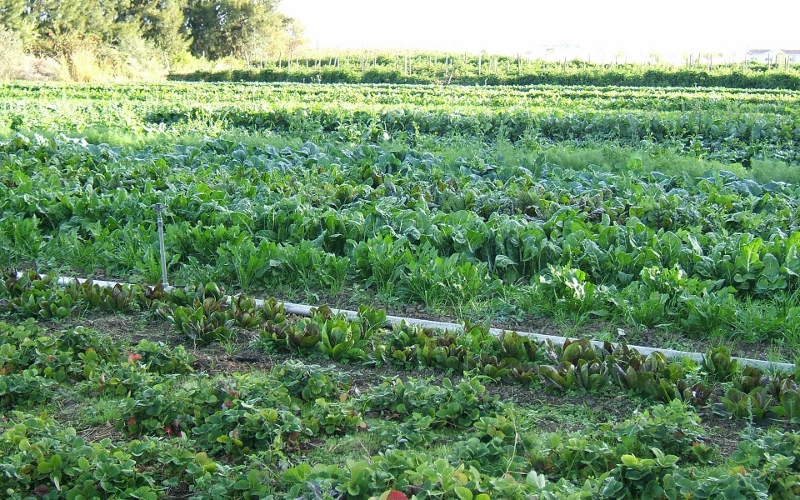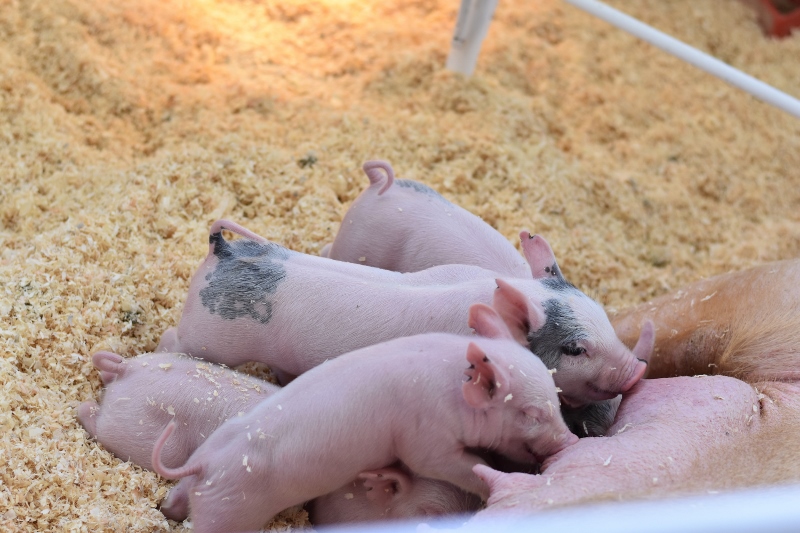Organic farming is the process of using environmentally friendly farming methods to improve and maintain soil health, to protect the environment and to ensure plant, animal and human health.
The principles apply to both horticulture and raising livestock.
Organic Crop Production
Organic horticultural practises are holistic and are applied throughout the life cycle of the plant. This means that the seed or planting material will preferably have been developed under certified organic management. Organic operators do not use genetically modified organisms (GMO), including seed.
The production of organic crops and plants is soil based; hydroponic systems are not used. Organic growers base all their work on healthy, living soil. They achieve and maintain this in various ways.
They create fertile soil by using microbial, plant or animal matter inputs. Green manure, compost and mulch may be supported by the use of organically certified fertiliser.
These fertilisers come in various forms:
- granular or meal;
- liquids for use as foliar sprays or for irrigation application to soil.
Talborne Organics supplies various products to meet these needs.
All minor and micro-nutrients and organic microbial preparations based on naturally occurring organisms may be applied.
All inputs maintain the health of the water, air and biodiversity, as well as that of the fungi and bacteria in the soil. Once again, Talborne Organics offers a wide array of products that make optimal crop nutrient supply easy.
Organic farming does not use synthetic fertilisers.

Diverse crop rotations support the health of the soil and plants. This forms part of the approach to minimise pests and diseases. Growers choose some crops for their soil-improving qualities and others because they are deep rooting.
Intercropping and companion planting also help to manage weeds, diseases and pests. Mulching, the use of cover crops and grazing are also encouraged.
If cultural and mechanical means do not solve problems of pests and diseases, certain organic crop protectants are certified for use.
Organic Animal Husbandry
Organic livestock owners set themselves the goal of establishing environmentally-friendly production practices, sustaining animals in good health, realising high animal welfare standards and producing products of high quality.
It is important that the livestock is managed by suitably trained personnel.
Organic animal owners do not practice landless animal husbandry. This means that the animals have unrestricted and daily access to pasture or a soil-based open air exercise area or run that has vegetation.
There is strong emphasis on the freedom of movement for the animal and space to meet the behavioural needs of the stock, including grazing, grooming and resting.
According to the breed and size of the livestock there must be sufficient fresh air, water, feed, thermal comfort and natural daylight.
The SA Organic Sector Organisation (Saoso) has drawn up a standard which gives details of the housing requirements for different species. Access the standard here.
The animals should be bred and born in organic conditions. The local conditions will influence the choice of breeds.

Organic animals eat organic forage and feed of good quality. The standard lists the substances that are not to be included in the diet. Young stock from mammals shouldl be provided maternal milk or organic milk from their own species and should be weaned only after a minimum period, which varies with the type of animal.
Transportation and slaughter must be managed in as stress-free a way as possible.
Veterinary Medicines
The organic philosophy is based on the theory that a healthy, well fed and stress free animal will be better able to withstand parasites and disease. The chosen breed should also be resistant to local pests and diseases.
Should an animal be injured or become ill, it should be treated with natural medicines and treatments, including homeopathy, Ayurvedic medicine and acupuncture.
If the grower is forced to use synthetic allopathic veterinary drugs or antibiotics, the animal can no longer regarded as organic. However, notifiable exceptions may be permitted under certain circumstances.
This is part two of a five-part series on organic farming methods. For more, click here.

